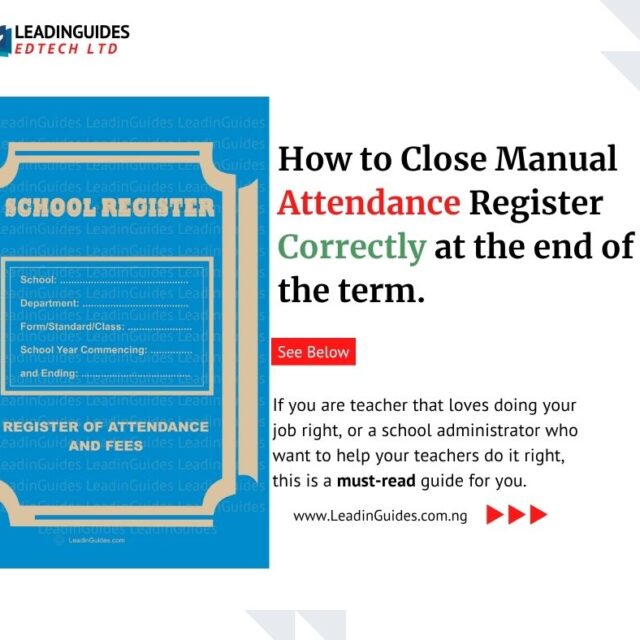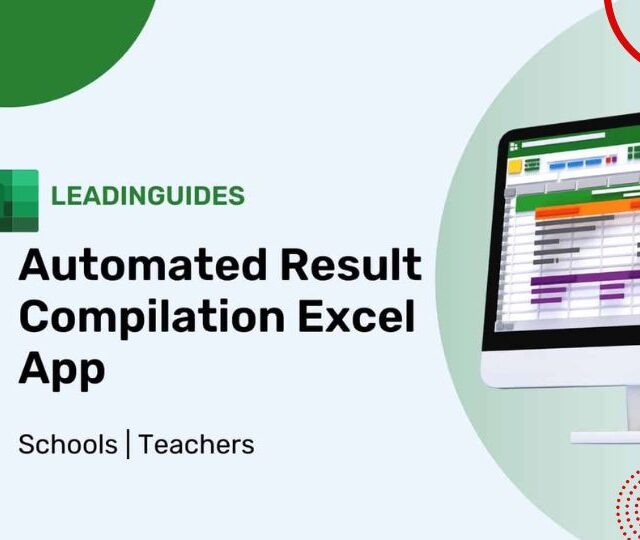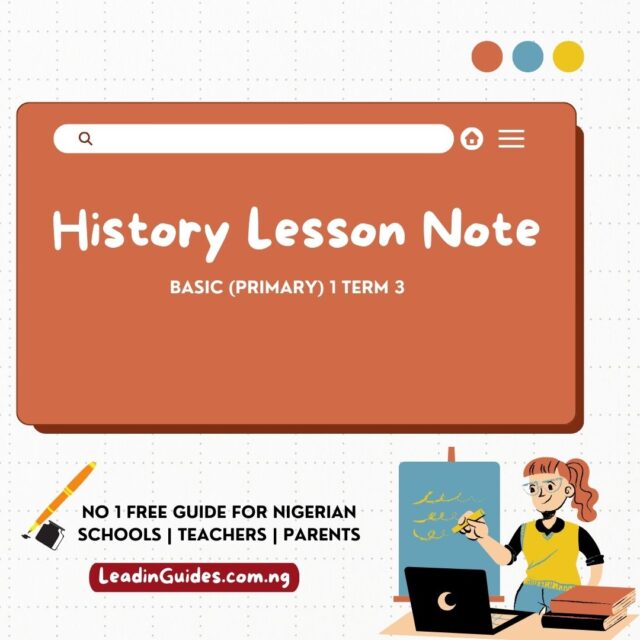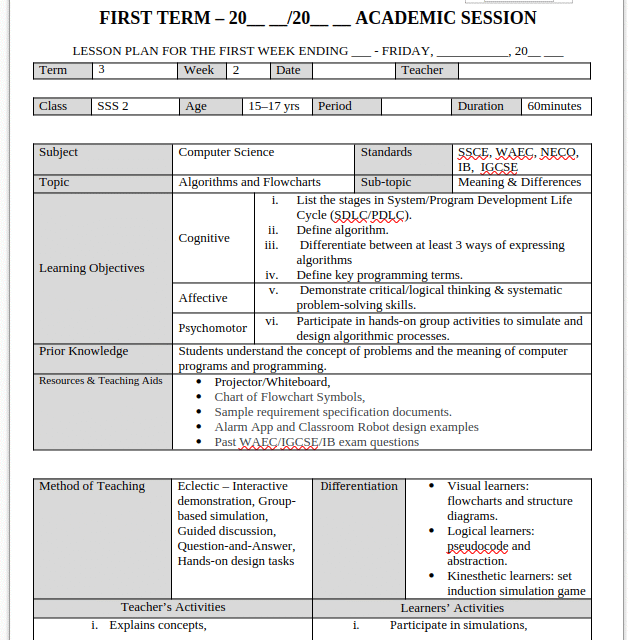Topic: Meaning of (Introduction to) History
- Narrates legendary history story.
- Groups learners for brainstorming session.
- Define, explain & leads learners to read definition & importance of history.
- Source instructional materials
1. Pupils as a class, brainstorm on the meaning of history
2. Pupils in small groups, analyse the fact that Herodotus is the father of Modern History
3. Pupils as a class, are guided to state the reasons why we study history
Introduction to History
• What is History?
• Father of Modern History
• Why We Study History
• How to obtain Historical Knowledge
Delivery Guide
Why is This Topic Included in the Scheme?
The topic “Introduction to History” is strategically introduced at the beginning of the national History curriculum for Primary 1 to lay a strong foundation for historical thinking and awareness in young learners. It aims to cultivate a basic understanding of what history is, why it matters, and how it is studied—instilling curiosity about the past and an appreciation for the development of human society.
By familiarizing pupils with concepts such as the meaning of history, the Father of Modern History (Herodotus), and reasons for studying history, this topic encourages pupils to begin seeing history not as a distant or abstract idea but as a living connection to their identity, community, and nation. Learning how historical knowledge is obtained also helps children appreciate evidence-based thinking and the importance of preserving the past for future generations.
This topic is therefore foundational—not just for academic progression, but for forming well-rounded citizens who value learning, identity, and cultural continuity.
What Pupils Should Get by the End of the Lesson
By the end of the week’s lessons, pupils should be able to:
-
Understand and explain the meaning of history.
-
Recognize Herodotus as the Father of Modern History.
-
Identify reasons why we study history as individuals and as a nation.
-
Demonstrate an awareness of how historical knowledge is gathered (e.g., through stories, artifacts, books, and oral accounts).
This early engagement with history nurtures inquiry, critical thinking, and a sense of identity—essential tools for personal development and future learning.
To the Teacher Delivering This Topic
Dear Teacher,
As you prepare to guide your pupils through their first formal encounter with history, your role is both exciting and crucial. You are not just delivering content; you are introducing a mindset—a way of thinking that values the past as a guide for the future.
Please approach this topic with simplicity, enthusiasm, and patience. Your pupils are young and likely unfamiliar with historical concepts, so use everyday experiences, family stories, and visual materials to bridge that gap. Let your tone spark curiosity: present history as a story—one they are a part of.
Avoid turning the topic into a dry recitation of facts. Instead, inspire wonder: Who was Herodotus? Why should we care about the past? What can we learn from it? Let pupils ask questions, share what they know, and reflect on why we remember things.
A weak or overly technical approach can confuse or bore them. But an engaging, relatable, and interactive lesson will awaken their interest and set them on a lifelong journey of discovery. Your passion and approach matter deeply.
By introducing history well, you help raise children who are reflective, respectful of their roots, and eager to build a better future.
Comprehensive Lesson Notes for Effective Delivery
Are you wondering how to teach the topic “Introduction to History” in a way that is age-appropriate and impactful?
To support you, we have created a clear, structured lesson guide that ensures pupils:
-
Grasp the basic definition and value of history.
-
Understand who Herodotus is and why he matters.
-
Can confidently express reasons why learning history is important.
-
Begin to ask questions and make connections with their everyday lives.
Our lesson notes include:
-
Simple, relatable definitions of key concepts.
-
Engaging activities like brainstorming, storytelling, and picture analysis.
-
Group and individual tasks that reinforce collaborative learning and personal reflection.
-
Formative assessment tips to check comprehension throughout the lesson.
👉 Click here to read and download the FREE lesson notes and plans for Weeks 1 & 2.
Final Thoughts
When your pupils begin to understand that history is not just about dates and old stories, but about real people, real choices, and real lessons—they will start to see themselves as active participants in shaping their future. That awareness is the first step in raising thoughtful, informed citizens who care about their nation and the world.
Let’s teach history the right way—by making it meaningful, accessible, and inspiring from Day 1.
Related Guides You May Also Like
Closing Attendance Register Termly
This post, Closing Attendance Register Termly, in one sentence This post, Closing Attendance register termly; provides step-by-step guides on how to correctly close students’ attendance registers for every term. This guide is for schools and teachers that use the traditional (manual) attendance register. However, schools and teachers that use modern attendance system can also benefit […]
Automated Result Compilation Excel App
What is the Automated Result Compilation Excel App? This Automated Result Compilation Excel App is a Microsoft excel application that helps schools and teachers to quickly compile and prepare many students’ report cards at once. LeadinGuides created the automated result compilation excel app as alternative for low-cost schools who cannot afford the more complex online […]
School Owner-Administrator Too Lenient? What to do
A school owner-administrator too lenient? Yes, some are; and “uncontrollably” so. The problem is that been too lenient has repercussions, negative ones – for the administrator, staff and the organization. So, when a school owner-administrator is too lenient; what is the right thing to do? In this post, I discuss just that. In addition, I […]
Lesson Note – Basic (Primary) 1 History Term 3 Week 2
Introduction to Lesson Note – Basic (Primary) 1 History Term 3 Week 2 This Lesson Note – Basic (Primary) 1 History Term 3 Week 2 is the most comprehensive lesson guide for schools, teachers and parents in Nigeria. Nigerians in the diaspora may also use this lesson note guide to teach their children Nigerian History […]







